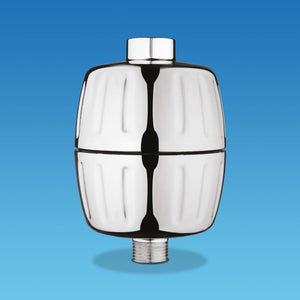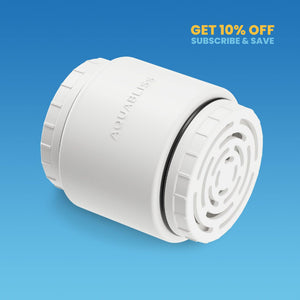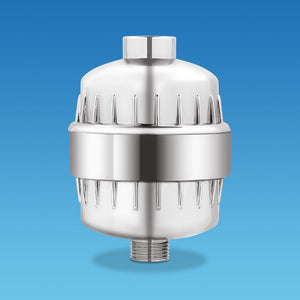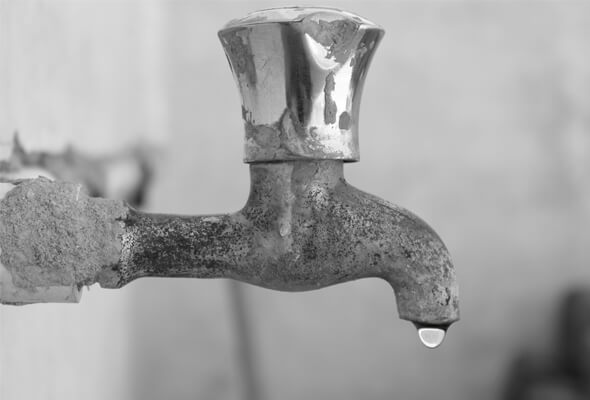Water is an essential part of our daily lives, and it’s standard for our tap water to contain a variety of minerals, including potassium, calcium carbonate, chloride, magnesium, iron, and zinc.
While these minerals can contribute to a healthy lifestyle, an overabundance can lead to hard water problems. This is why it’s crucial to learn how to test for hard water at home. Conducting a water hardness test can provide instant information about the quality of your home’s water supply.
According to a U.S. Geological Survey, 85% of the water in the U.S. is classified as “hard,” meaning it contains high levels of calcium and magnesium. These minerals can cause various issues in your household, affecting not just your plumbing but also your skin, hair, and overall water quality.
Research institutions routinely conduct water quality analysis, and homeowners should take similar steps. This guide will explore the importance of testing, the problems associated with hard water, and ways to test your water at home effectively.
Look for Signs of Hard Water

High levels of mineral ions lead to “hard water,” which can accumulate as mineral buildup from rock formations. By the time it reaches your home, your tap water may contain an excess of minerals, such as calcium and magnesium. This indicates it’s time to learn how to test for hard water.
Signs of hard water include:
- Mineral deposits and crusty scaling on pipes, showerheads, and appliance fixtures. These deposits can accumulate in your water heater, causing it to work harder and potentially leading to premature failure.
- A reduced lifespan of your appliances, clothes, and property due to increased wear and tear. Hard water can leave residue on dishes, leading to the need for more frequent washing and potentially damaging your dishwasher.
- Filmy residue on glassware and dishes, leading to a spotty appearance. You may notice that your glassware never seems to come out of the dishwasher clean, even after multiple washes.
- Decreased water pressure from sediment buildup, which can eventually clog pipes and lead to costly repairs.
- Dry skin and hair damage, especially for individuals with sensitive skin. Hard water can strip your skin of its natural oils, leading to irritation and dryness.
It’s vital to conduct a water hardness test as soon as you notice these issues to take appropriate action. Knowing the hardness level early can help you prepare for any potential water issues.
Choose Your Test
To obtain accurate results from your hard water test, seek unbiased kits and professionals from reputable establishments. Whether you decide to treat hardness yourself or enlist the help of a water supplier, testing early will save time and costs.
Consider these factors when choosing your testing method:
- Ease of use: Some tests are straightforward and require minimal equipment, while others might involve more complex procedures.
- Cost: Home test kits vary in price, and more advanced tests conducted by third-party labs can be more expensive.
- Accuracy: Some tests provide instant results, while others may require laboratory analysis for precise measurements.
Test for Hard Water
You can conduct several tests yourself at home. Here are some effective methods to test your water:
A. Use the Soap Test
A soapsuds test is quick, easy, and cost-effective. When hard water interacts with soap, it prevents lathering. To conduct this test, add a few drops of pure liquid soap into a clear bottle filled with tap water. Shake it and observe if fluffy bubbles form. If you see a milky consistency without much lather, your supply is hard.
B. Get a Water Hardness Test Kit
Many online retailers offer water hardness test kits at various price points. These kits often include test strips and color comparison charts for easy reading.
To use a hard water test kit, dip the strip into your tap water for a few seconds, then compare the resulting color with the provided chart. This can give you a quick snapshot of your water's hardness.
C. See for Yourself — Visual Test
The unmistakable crusty scaling on taps and pipes is a clear sign of hard water. Check the clarity of your tap water in a glass; a cloudy appearance indicates high mineral content.
Testing the water's hardness can reveal if you need to install a water filter or other solutions to manage your hard water problem.
D. Ask Authorities to Test
If you live in the U.S., your local water municipality typically maintains a standard for drinking water set by the EPA. You can request a water quality report from your municipality or provider.
While these tests may not be as precise as those done at home, they provide a general overview of the water hardness level in your area. It’s a great starting point for assessing your water quality.
Monitor Water Hardness Levels
Most households have a hard water supply, which can lead to noticeable problems like crusty scaling on taps, pipes, and metal appliances. Regularly checking your water hardness levels can save you from costly repairs and health issues down the line.
For minor issues, simple scrubbing can often remove the mineral buildup. However, serious damage may require a hard water test kit.
Reduce Water Hardness (Temporarily)
You can reduce hardness in some water by boiling it, which separates it from excess magnesium and calcium. However, if the concentration of ions is too high, other water softeners may be necessary.
Installing a water softener can be a more permanent solution, especially if you have ongoing hard water problems. A water hardness test can help you determine the specific issues you’re facing.
Experience Clean Water

If your tests indicate hard water, don’t worry! At AquaBliss, we make it easy to keep your skin and hair healthy. Our water filters reduce the adverse effects of hard water by filtering harmful particles and infusing beneficial minerals into your shower water.
Best of all, our filters are compatible with all standard fixed, rain, and handheld shower types. With a simple, toolless twist-to-install design, you can easily set it up yourself and replace cartridges when necessary. In addition to installing a water filter, consider investing in a water softener for your entire home.
This solution can help mitigate many of the problems associated with hard water, such as mineral deposits in your appliances and dry skin after showers.
Conclusion: Taking Action Against Hard Water
Testing your water is an essential step toward ensuring a healthy and comfortable living environment. With various options available, from simple home tests to professional services, there’s no excuse not to check your water hardness.
Early detection of hard water problems allows for proactive solutions, protecting your health and your home. Ultimately, understanding your water quality empowers you to make informed decisions.
If you find that your water is hard, take the next steps to address the issue. Whether through the installation of a water filter, water softeners, or regular testing, you can ensure that your household enjoys clean, soft water.
At AquaBliss, we're dedicated to helping you achieve the best water quality possible. Explore our selection of filtration products and enjoy 100%-guaranteed softer-feeling water with AquaBliss! For more information about water testing, filtration solutions, or general water quality tips, feel free to reach out to us!







